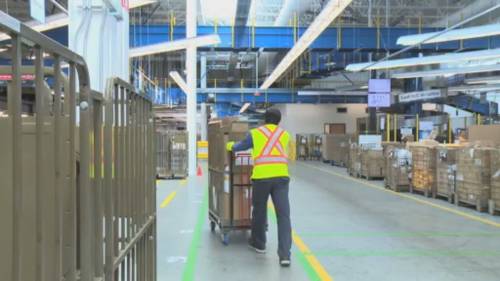As Canadians brace for a potential nationwide postal disruption, negotiations between Canada Post and the Canadian Union of Postal Workers (CUPW) have reached a critical juncture. With the strike deadline looming this Friday, millions of Canadians and businesses are preparing for significant service interruptions that could affect everything from parcel deliveries to pension payments.
The dispute centers on several key issues, including wage improvements, job security, and working conditions. CUPW, representing approximately 55,000 postal workers, is pushing for better compensation amid rising inflation and addressing concerns about the increasing parcel volumes that have transformed postal workers’ daily routines.
“This potential work stoppage represents a lose-lose situation for everyone involved,” said Labour Relations expert Dr. Emma Richardson from the University of Toronto. “Postal workers face financial hardship during strikes, while Canada Post stands to lose millions in revenue and customer confidence.”
Canada Post has warned that a full strike would halt mail and parcel delivery across the country, with only essential services continuing under federal requirements. Government cheques, including pension payments and social assistance, would still be delivered on designated days, but regular mail processing would cease entirely.
For small businesses that rely heavily on Canada Post for shipping products, the timing couldn’t be worse. “We’re just recovering from pandemic-related challenges, and now we’re facing another major disruption to our operations,” said Jamal Khouri, owner of an online clothing retailer in Vancouver. Many small businesses are scrambling to inform customers of potential delays and exploring alternative shipping arrangements.
The federal government has so far resisted calls to intervene, with Labour Minister Seamus O’Regan encouraging both parties to reach a negotiated settlement. However, pressure is mounting from business groups and opposition parties for the government to consider back-to-work legislation if a prolonged disruption occurs.
This isn’t the first time Canada has faced postal disruptions. The 2018 rotating strikes lasted for over a month before the government legislated postal workers back to work. That legislation was later deemed unconstitutional by the Ontario Superior Court, highlighting the complex balance between essential services and workers’ right to strike.
Financial analysts estimate that a prolonged strike could cost the Canadian economy hundreds of millions of dollars, particularly impacting e-commerce operations and time-sensitive document delivery. The uncertainty comes at a particularly challenging time as many retailers prepare for the upcoming holiday shopping season.
As the deadline approaches, both sides have expressed willingness to continue negotiations, but significant gaps remain in their positions. Citizens are advised to prepare by paying bills early, signing up for electronic communications where possible, and considering alternative delivery methods for urgent items.
The question now facing Canadians is whether our postal system can evolve to meet the changing needs of both workers and customers while maintaining the essential service that communities across our vast country depend upon. As digital alternatives continue to reshape how we communicate and conduct business, what role should a modern postal service play in Canada’s future?










